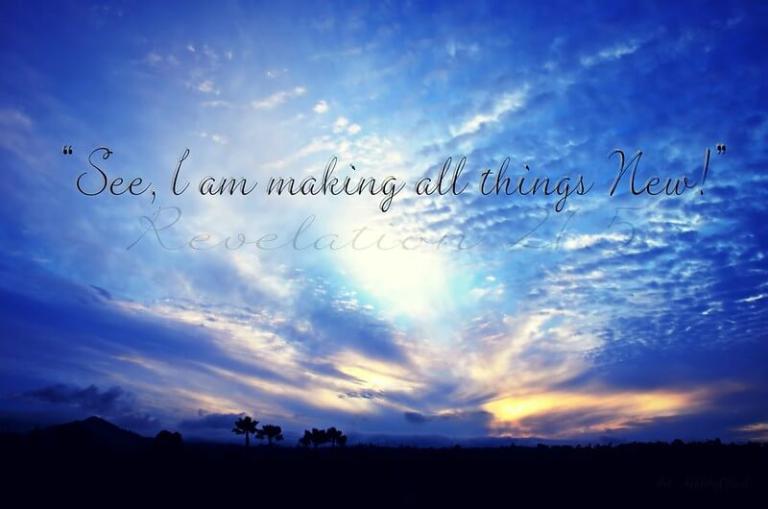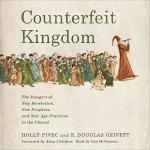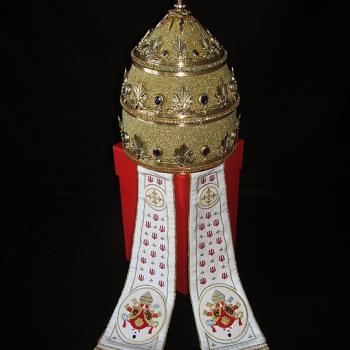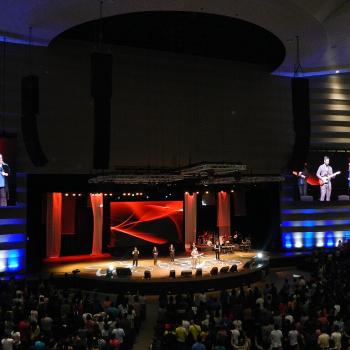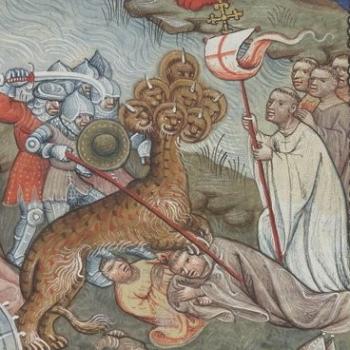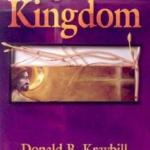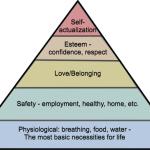When we meditate on the End Times, which we are supposed to do during Advent, we think of the Second Coming of Christ, the resurrection of the dead, and Judgment Day. But there is another aspect of Christ’s return–indeed, of the Christian faith–that we often forget about.
When this world comes to an end, God will create the world again. There will be a new creation. “Then I saw a new heaven and a new earth, for the first heaven and the first earth had passed away” (Revelation 21:1).
The Fall will be undone; Paradise will be regained. Everything will be restored to what God initially intended it to be. Including us.
Yes, meditating on the End Times can be daunting, especially as we reflect on the horrors described in the Book of Revelation that seemingly must come first, and, what is even more terrifying, as we reflect on the Last Judgment, knowing ourselves as we do. But the prospect of the New Creation should fill us with joy. This is certainly the mood when Christians of the past anticipated Christ’s return and what that will mean.
Jonathan Warren Pagán has written an article for Christianity Today entitled Come Thou Long Expected Judgment. He says that Christians should welcome the Last Judgment. The church fathers and other Christians of the past certain did. They saw the connection between that judgment–along with salvation itself–and God’s new work of creation. Here are some of the quotations he cites:
In a homily on the 96th psalm, [St. Augustine] writes that Adam fell and broke into a thousand pieces that filled the earth with dissensions, wars, and hatred, “but the Divine Mercy gathered up the fragments from every side, forged them in the fire of love and welded into one what had been broken. That was a work which this Artist knew how to do. … He who remade was himself the Maker; he who refashioned was himself the Fashioner.”. . .
“Just as a bronze vessel that has become old and useless becomes new again when a metalworker melts it in the fire and recasts it,” wrote St. Symeon the New Theologian in the tenth century, “in the same way also the creation, having become old and useless because of our sins, … will appear new, incomparably brighter than it is now. Do you see how all creatures are to be renewed by fire?”. . . .
In a famous sermon, John Wesley declared that “the whole brute creation will, then, undoubtedly, be restored, not only to the vigor, strength and swiftness which they had at their creation, but to a far higher degree of each than they ever enjoyed. They will be restored, not only to that measure of understanding which they had in paradise, but to a degree of it as much higher than that, as the understanding of an elephant is beyond that of a worm.”
Indeed, we learn that the New Creation has already begun: “Therefore, if anyone is in Christ, he is a new creation. The old has passed away; behold, the new has come” (2 Corinthians 5:17).
If we are “in Christ”–by faith, by baptism (see Romans 6:3-5)–we need not fear the Last Judgment. Our verdict has already been announced: “There is therefore now no condemnation for those who are in Christ Jesus” (Romans 8:1).
In the meantime, we can say with St. Peter, in his reflections on the Second Coming of Christ, “according to his promise we are waiting for new heavens and a new earth in which righteousness dwells” (2 Peter 3:13).
So much for Advent! Starting tomorrow, this blog will shift its attention to Christmas!
Illustration: “All Things New” by Sharon Tate Soberon, via Flickr, CC 2.0


